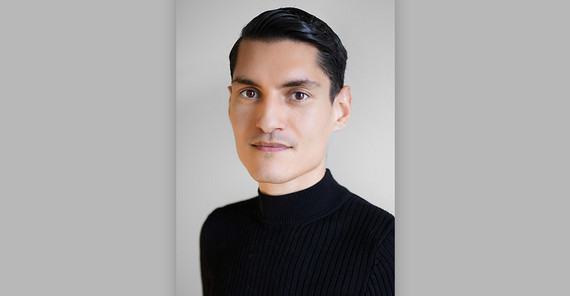Narcissism is a widely discussed topic at the moment. However, it has a very negative connotation. Are we doing these people an injustice?
One perception prevails in popular opinion: Narcissism is something you would prefer not to have anything to do with. It means being selfish, fastidious, opinionated, or arrogant – in other words, rather difficult in interpersonal relationships. These aspects definitely exist. But science also shows that narcissistic personalities possess many positive qualities, such as charisma, innovation, curiosity, or the ability to inspire and motivate people.
And it is actually a widespread practice to praise oneself, badmouth others, and see oneself as right. So do we all have narcissistic traits?
My approach is rooted in personality psychology. Hence, narcissism is a personality trait like any other. About 68% of the population is moderately narcissistic. On one side of this spectrum are very withdrawn people, and on the other, people who are markedly narcissistic. So it’s a spectrum on which we can locate ourselves. In popular culture, narcissism is predominantly seen categorically – i.e., in clearly defined stereotypes – because such simplifications make our complex world more understandable. In the clinical-diagnostic field, you get diagnoses like a kind of label. I, on the other hand, prefer a dimensional perspective.
You present the different dimensions of narcissism on your website. Could you explain them?
In psychology, we distinguish four facets, all of which involve a striving to maintain one’s self-worth. To achieve this, we use various means. One variant is self-presentation: I emphasize how smart, high-performing, experienced, or attractive I am in order to feel good. That would be the agentic dimension. In antagonistic accentuation, we derogate other people or put ourselves in the limelight through dominance, aggression, or claims of superiority in order to raise our own value. The third, the communal dimension, is about self-presentation in relationships, for example with friends or family. I may then present myself as particularly helpful, cooperative, or caring. But the motive is decisive: Am I really acting out of altruism or because I want to feel good about myself? The fourth facet, the neurotic dimension, concerns people who secretly believe they deserve more than others but present themselves as victims: they try to gain attention through their suffering.
When do these behaviors become a problem?
Whenever there is a conflict that leads to sustained suffering in the medium or long term. These can include inner emptiness, feelings of devaluation, or overwhelming feelings of shame or guilt. This does not necessarily apply to agentic narcissists. These individuals are quite adept at managing social relationships because they are the engine of attention. The antagonistic dimension, on the other hand, creates many interpersonal conflicts through harsh criticism or devaluation. This often results in broken relationships or acute crises, such as losing a job, which creates hardship for the narcissistic person.
You coach companies and individuals on this topic. Which kinds of problems do people bring to you?
Resource or distribution conflicts are typical, such as disputes over the most interesting projects within a team. Who gets it – the most capable or the loudest person? Then there are very classic conflicts caused by derogatory behavior. The perpetrator-victim reversal is also a typical strategy. “I’m the one suffering here,” narcissistic people like to say. They usually realize very late – or not at all – that others are turning away from them or that the team is not working. And they can often convince other people that nothing is wrong with them. Managers in particular usually enjoy a high level of protection within an organization. Conversely, employees often do not dare to seek support, such as by contacting the works council or the human resources department.
How can affected people deal with narcissists in the workplace?
In the psychoeducation context, I always recommend examining oneself first. In our conversation, I try to find out what contact with the narcissistic person elicits in those affected, what it triggers in them, to use another buzzword. It can often be traced back to personal or relationship experiences, which are projected onto the other person. It is also worth describing the narcissistic behavior in detail. This verbalization enables people to regain control because those affected often experience a diffuse, unsettling feeling. It helps to take notes and categorize what happened. For example: “In the team meeting, the manager called me ‘incompetent’, which made me feel exposed and I would have liked to leave the appointment”. Another tip: Look for allies! As a rule, others in the team are also bothered by such behavior. This provides relief. If possible, those affected can also use distancing techniques and, for example, only attend meetings virtually or set time limits for interactions and reduce private conversations to the bare minimum. As a last resort, it may even make sense to change departments or companies.
What role do self-worth and a lack of empathy play?
In popular perception, narcissists are thought to lack empathy. As a psychologist, however, I distinguish between affective and cognitive empathy. A narcissistic personality can certainly understand what others are feeling, because the ability to adopt the perspective of another person is usually moderately developed – after all, it helps them manipulate others. But they cannot empathize with others and express it. This is called “cold empathy”.
What are the causes of narcissism?
Genes play a major role, but upbringing is important as well. According to the psychodynamic approach, narcissism is more likely to develop in children who receive too little attention and experience a cold parenting style in which their needs are ignored. The experience of feeling unimportant and worthless leads them to develop fantasies of omnipotence, a counter-world in which they are great. Others believe that the cause lies in children being too much the center of attention and getting everything they want. Outside the family, in daycare or school, they receive no affirmation and develop self-doubt, which they try to compensate for by arrogance or a desire for admiration. Both explanations are plausible. There is more empirical evidence for the second theory, but I often hear from psychoanalysts that the first approach has a very high relevance in a therapeutic context.
Are they able to change?
Narcissism is certainly not incurable, as is often said. But it takes time and energy, and both are often limited. At its core, personality is something stable. However, marriage, the birth of a child, crises, diseases, or death are serious events that can realign a personality. Small changes are also possible depending on the situation, for example, when feedback from others prompts self-reflection. Ultimately, people are more than their narcissism: There is shyness or conscientiousness, there are values, norms, etc.
Instagram, Trump, and Musk: is our society becoming increasingly self-obsessed?
In the USA, it was suggested a few years ago that narcissism was spreading like an epidemic. However, a more recent study has shown that the phenomenon is stable and is actually declining in some places. But we live in politically turbulent times: At the collective level, it could increase in the medium or long term, for example when nations put themselves on a pedestal. The individual ego, on the other hand, is likely to become more level-headed or subdued – at least that’s my anecdotal evidence. But we should broaden our view and not just look at Donald Trump or other prominent figures. Narcissistic motives are often hidden behind moral exaggerations, for example when someone says, “How can you eat meat? That’s bad for the climate!” Such statements are socially accepted today. Narcissism has many faces.
This text was published in the university magazine Portal – One 2025 “Children” (PDF).


